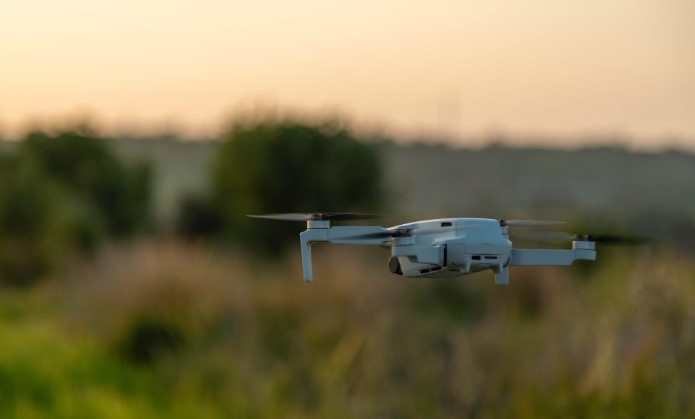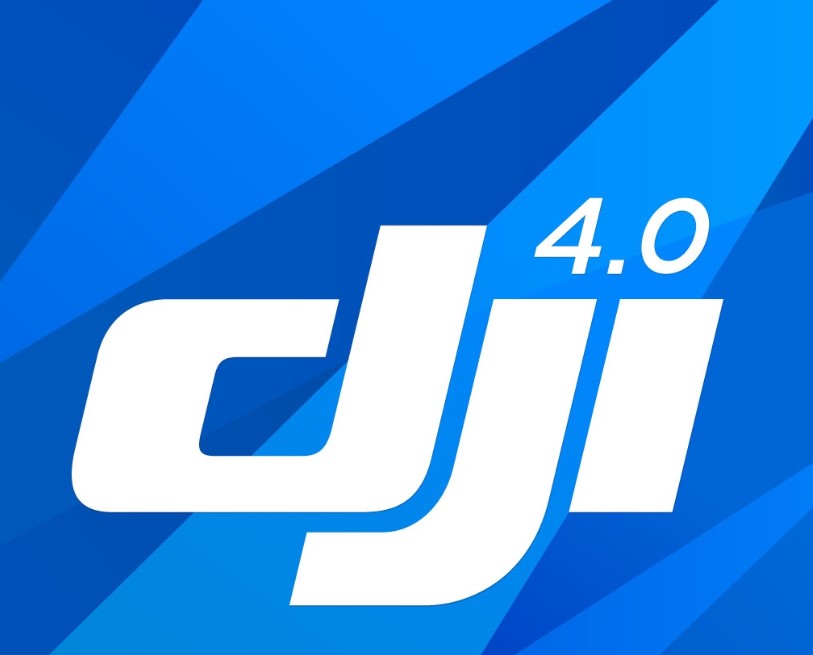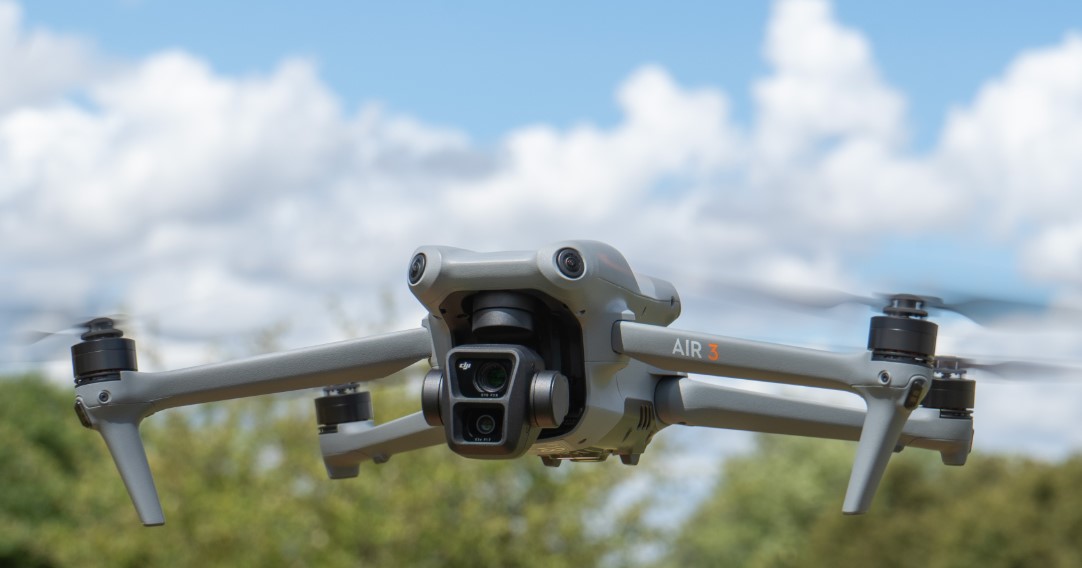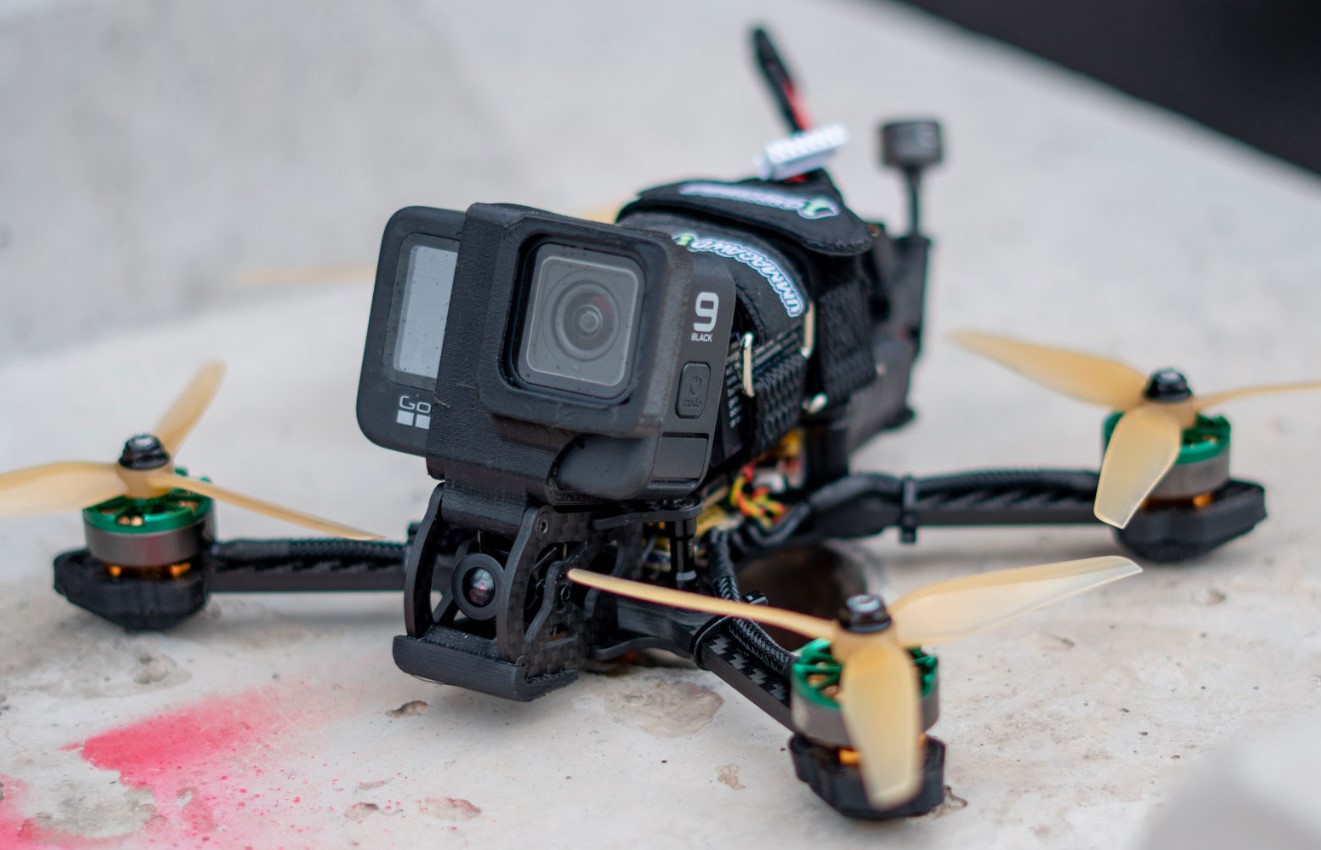Is Drone Fishing Legal in Florida? The use of drones has revolutionized many industries, from photography to agriculture, and fishing is no exception. Drone fishing, a technique that combines traditional fishing methods with modern drone technology, allows anglers to cast their bait farther and access previously unreachable waters. However, with innovation comes regulation, and understanding the legality of drone fishing in Florida is essential for any angler looking to adopt this method. This article explores the legal framework surrounding drone fishing in Florida, ensuring compliance while enjoying this exciting practice. Follow Dronevoz.com !!!
What is Drone Fishing?
Drone fishing involves using drones equipped with cameras and bait release mechanisms to place fishing lines at precise locations in the water. This method provides several advantages, such as extended casting range, better visibility of underwater terrain, and the ability to target specific fish populations more effectively. Anglers can deploy bait to locations that are inaccessible by boat or shore, increasing their chances of a successful catch.
However, the very features that make drone fishing appealing have also raised concerns regarding its impact on fish populations, wildlife, and the environment. Consequently, various states, including Florida, have introduced regulations to manage its use.
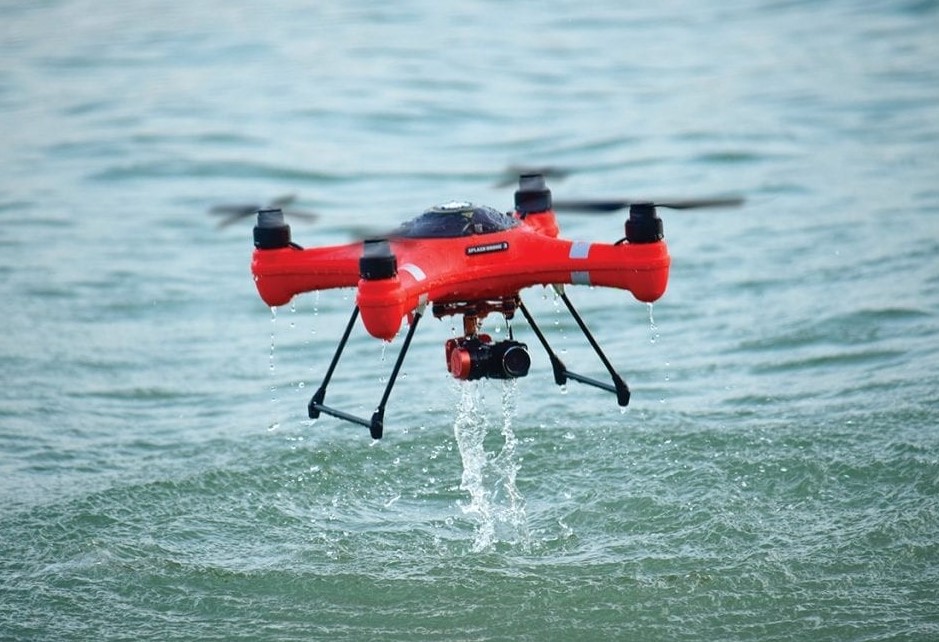
The Legal Landscape of Drone Fishing in Florida
Florida is a popular destination for fishing enthusiasts, boasting a diverse array of freshwater and saltwater ecosystems. Given the state’s significant reliance on fishing for recreation and economic purposes, the regulation of new fishing technologies like drones is crucial. While drone fishing is generally permitted in Florida, specific rules and guidelines govern its use.
Federal Aviation Administration (FAA) Regulations
Before addressing Florida-specific laws, it’s important to consider the overarching regulations imposed by the Federal Aviation Administration (FAA). Drones, or unmanned aerial vehicles (UAVs), must comply with FAA guidelines, which include:
- Recreational Use: If you’re using a drone for hobbyist fishing, it must weigh less than 55 pounds, be registered with the FAA, and follow the Recreational Flying Rules.
- Commercial Use: For professional fishing guides or anyone using a drone commercially, a Part 107 license from the FAA is required.
- Flight Restrictions: Drones cannot fly above 400 feet, must remain within the operator’s line of sight, and cannot be flown over people or moving vehicles.
These rules apply regardless of whether the drone is used for fishing or other purposes.
>>> Click Is Drone Fishing Legal in California?
Florida Wildlife Regulations
Florida’s fishing regulations are primarily managed by the Florida Fish and Wildlife Conservation Commission (FWC). While there are no explicit laws prohibiting drone fishing, anglers must adhere to the state’s fishing laws and environmental protections, which include:
- Licenses and Permits: A valid Florida fishing license is required for all recreational anglers aged 16 and older, whether fishing by traditional methods or using a drone.
- Protected Species: Using drones to target endangered or protected species is strictly prohibited. These include certain types of sharks, sea turtles, and other marine life.
- Catch Limits and Seasons: Anglers must follow catch limits, size restrictions, and seasonal closures, even when fishing with drones.
- Marine Protected Areas: Drones cannot be used for fishing in areas designated as marine sanctuaries or other restricted zones.
Ethical and Safety Considerations
Although drone fishing is legal under certain conditions, ethical considerations play a significant role in its acceptance. The use of drones to spot fish schools or deliver bait to hard-to-reach areas could be perceived as giving anglers an unfair advantage. Additionally, improper drone use may disrupt wildlife or violate privacy laws.
Is Drone Fishing Legal in Florida?
Drone fishing is not legal in Florida. While some states allow drone fishing with certain restrictions, Florida has specific regulations prohibiting the use of drones for fishing. The Florida Fish and Wildlife Conservation Commission has strict rules against using aircraft, including drones, to spot fish or drop bait.
Advantages and Challenges of Drone Fishing in Florida
Advantages
- Extended Reach: Drones allow anglers to cast lines beyond the surf zone, accessing deeper waters and larger fish species.
- Enhanced Accuracy: The ability to see underwater structures and fish schools with a drone’s camera helps in precise bait placement.
- Environmentally Friendly: Compared to traditional methods like boat fishing, drones have a smaller environmental footprint, reducing fuel consumption and habitat disturbance.
Challenges
- Regulatory Complexity: Adhering to FAA and FWC guidelines can be overwhelming, especially for beginners.
- Weather Sensitivity: Florida’s unpredictable weather, including high winds and sudden rain, can make drone operation challenging.
- Cost and Maintenance: High-quality fishing drones are expensive and require regular maintenance to function effectively in saltwater conditions.
Drone Fishing Best Practices in Florida
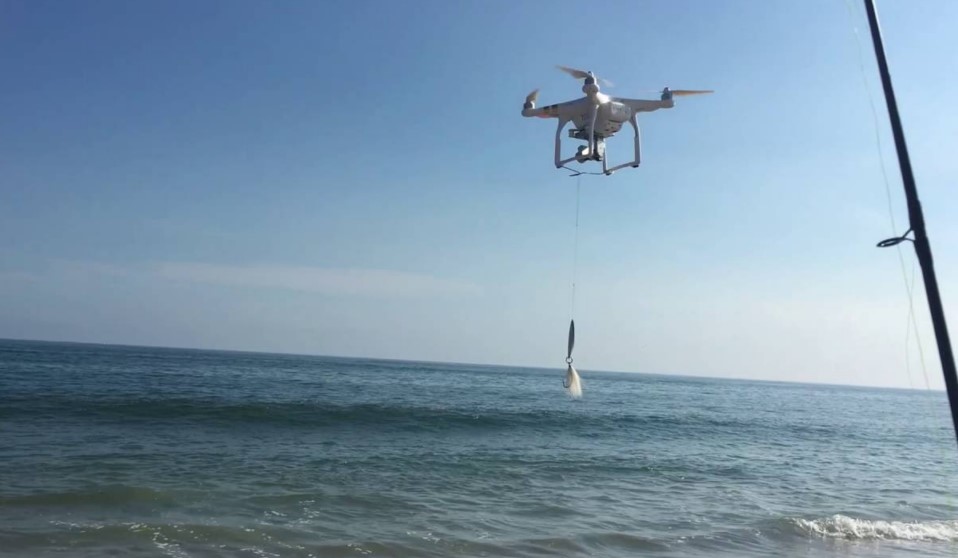
To ensure a safe, legal, and enjoyable drone fishing experience in Florida, anglers should follow these best practices:
- Research Local Laws
Before heading out, familiarize yourself with the local regulations in the area where you plan to fish. This includes checking for any special restrictions in marine parks or wildlife conservation areas.
- Choose the Right Equipment
Invest in a drone designed for fishing, equipped with waterproofing, strong payload capacity, and long battery life. Popular models include the SplashDrone and DJI Matrice series.
- Respect Wildlife and the Environment
Avoid disturbing wildlife or damaging sensitive habitats. Refrain from using drones in areas with nesting birds or protected marine species.
- Stay Within Line of Sight
Always keep your drone within visual range, as required by FAA rules. This ensures better control and reduces the risk of losing your equipment.
- Monitor Weather Conditions
Florida’s coastal areas are prone to sudden changes in weather. Check forecasts before flying your drone and avoid operating it in high winds or storms.
- Maintain Your Drone
Regularly clean and inspect your drone to prevent saltwater corrosion and ensure optimal performance.
Conclusion
Drone fishing is an exciting and innovative way to enhance the angling experience, offering unique advantages that traditional methods cannot match. In Florida, where fishing is a way of life, the legality of drone fishing is governed by a mix of federal and state regulations. While it is legal under certain conditions, anglers must navigate a complex framework of FAA guidelines, FWC rules, and ethical considerations.
